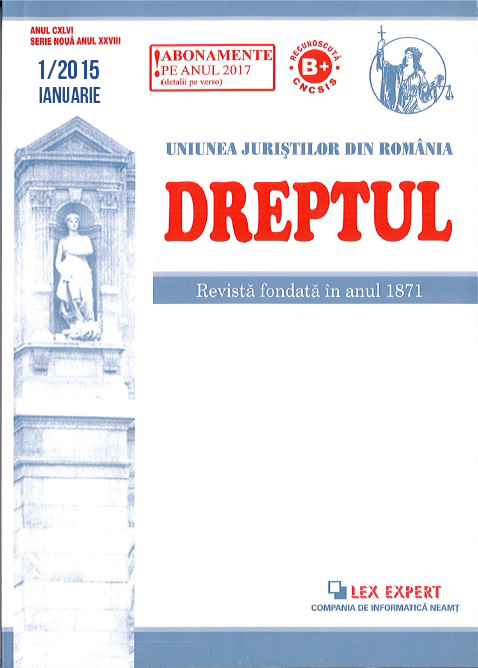Announced in theory, present in practice, and recognized everywhere, „flexible law” is seeking its own accreditation at a doctrinal level. Covering a number of highly heterogeneous normative instruments (directives, advices, charters, codes of conduct, et al.) having as a common element the fact of being imposed not by constraint, but by the adhesion of its recipients, it manifests itself specifically in international law (as „soft law”), EU law (as a method of governance), or internal order (as a lever of achieving the functions of the state). In relation to proper law („hard law”), flexible law manifests itself either as its precursor, in the process of adoption, a companion in its enforcement, or, in certain situations, as a substitute. Knowing diverse national experiences, flexible law presents itself as a factor of simplification and improvement of the quality of legal regulations.


